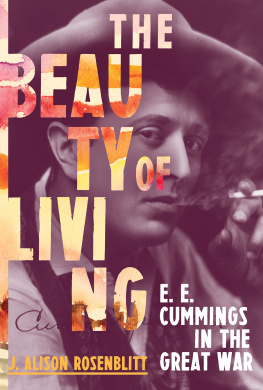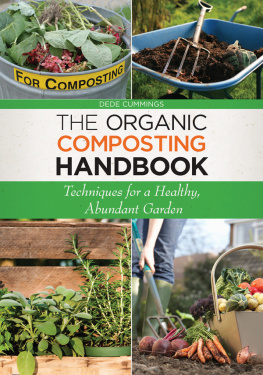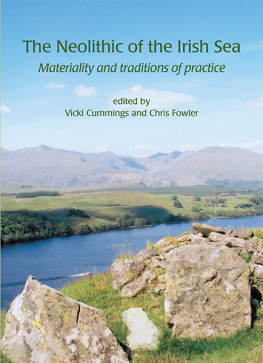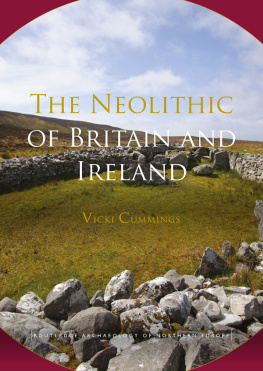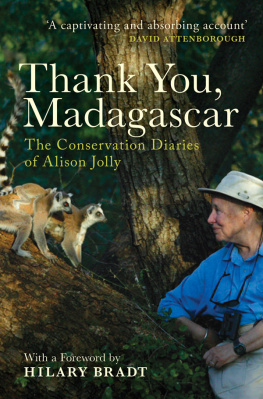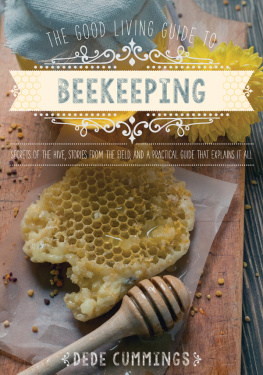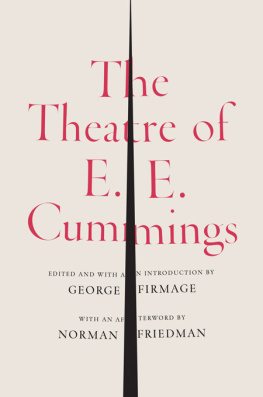Contents
Guide

ALSO BY J. ALISON ROSENBLITT
Rome After Sulla
E. E. Cummings Modernism and the Classics:
Each Imperishable Stanza

The Beauty of Living
E. E. CUMMINGS
IN THE GREAT WAR

J. Alison Rosenblitt

Copyright 2020 by J. Alison Rosenblitt
All rights reserved
Printed in the United States of America
First Edition
Since this page cannot legibly accommodate all the copyright notices, pages 32527 constitute an extension of the copyright page.
For information about permission to reproduce selections from this book,
write to Permissions, W. W. Norton & Company, Inc.,
500 Fifth Avenue, New York, NY 10110
For information about special discounts for bulk purchases, please contact W. W. Norton Special Sales at specialsales@wwnorton.com or 800-233-4830
Jacket design by Steve Attardo
Front jacket photograph: (E. E. Cummings portrait) MPI / Stringer / Getty Images
Jacket artwork: Sunset Beyond Church Spire, by E. E. Cummings / the Trustees for the E. E. Cummings Trust /
Book design by Brooke Koven
Production manager: Anna Oler
The Library of Congress has cataloged the printed edition as follows:
Names: Rosenblitt, J. Alison (Jennifer Alison) author.
Title: The beauty of living : E. E. Cummings in the Great War / J. Alison Rosenblitt.
Description: First edition. | New York : W. W. Norton & Company, [2020] | Includes bibliographical references and index.
Identifiers: LCCN 2019058084 | ISBN 9780393246964 (hardcover) | ISBN 9780393246971 (epub)
Subjects: LCSH: Cummings, E. E. (Edward Estlin), 18941962Childhood and youth. | Poets, American20th centuryBiography. | Cummings, E. E. (Edward Estlin), 18941962Criticism and interpretation. | World War, 19141918Literature and the war.
Classification: LCC PS3505.U334 Z834 2020 | DDC 811/.52dc23
LC record available at https://lccn.loc.gov/2019058084
W. W. Norton & Company, Inc., 500 Fifth Avenue, New York, N.Y. 10110
www.wwnorton.com
W. W. Norton & Company Ltd., 15 Carlisle Street, London W1D 3BS
1 2 3 4 5 6 7 8 9 0
FOR C.A.M.F.
in admiration

Labour is blossoming or dancing where
The body is not bruised to pleasure soul,
Nor beauty born out of its own despair,
Nor blear-eyed wisdom out of midnight oil.
O chestnut-tree, great-rooted blossomer,
Are you the leaf, the blossom or the bole?
O body swayed to music, O brightening glance,
How can we know the dancer from the dance?
W. B. Yeats , Among School Children
When you and I consult these hearts and minds of ours,what do we learn? That there actually exists a deeper beauty even than the beauty of deaththe beauty of living.
E. E. CUMMINGS, Armistice
Contents

The Beauty of Living
Prologue
ONLY MY DOOR CLOSING

... it was with a genuine and never-to-be-forgotten thrill that I remarked,as I crossed what might have been the threshold: Mais,on est bien ici. (But this is fine.)
A hideous crash nipped the last word. I had supposed the whole prison to have been utterly destroyed by earthquake,but it was only my door closing...
E. E. CUMMINGS, The Enormous Room
E. E. C UMMINGS was imprisoned for two nights at Noyon, a cathedral town in northeast France, in the cell that was fine. It was, said Cummings, about sixteen feet short and four feet narrow, with straw at one end and an imposing latrine pail at the other. He had by now tumbled to the notion that his arrest was connected to letters written by his friend William Slater Brown. But he had no idea where he was going and only a vague idea why. I am sorry for you, his interrogator had pronounced, but due to your friend you will be detained a little while.
Several weeks? asked Cummings.
Possibly.
Or possibly longer. He was soon to find that the efforts of fellow prisoners to contact the outside world had a way of going missing.
From Noyon, he was transferred to a brutal French prison camp in the town of La Fert-Mac. There he faced malnutrition and disease, dangerous levels of damp and cold, and the threat of transfer to the even more brutal prison at Prcign, where many prisoners died. Life at La Fert-Mac was a test of mental and physical endurance. Lunchbread and a few scraps of potato in brothwas the Soup. Dinnerbread and a few scraps of potato in brothwas, imaginatively, also the Soup. There was an indigestible piece of meat at lunch three times a week. The meal call, says Cummings, turned the prisoners into animals: a ferocious and uncouth miracle,this beautiful manifestation of the sinister alchemy of hunger.
It was 1917. Cummings had been serving as a volunteer in the Great War, as a driver with a mixed American-French ambulance unit. It was the fashionable thing to do, and, among his friends from Harvard, he was far from alone in volunteering. They were young men, and they dreamed of adventure.
It was on the Touraine , which sailed from New York on April 28, 1917, that Cummings met Brown. Cummings was a Harvard man, Brown a student at Columbia, and they became instant and intimate friends. The journey continued from ship to train; they were lost in private conversation when the rest of their detachment were herded out by a precipitate fellow volunteer, one stop before the last Parisian gare . At the next stop, they found themselves alone. They reported to the ambulance service headquarters in Paris, but through the accident of registering one day later than the rest of their cohort, their paperwork and requisitioning forms were separated. The requisition forms for their uniforms were processed on a delay; without uniforms, they could not be deployed; and thus for no reason other than accident of bureaucracy, it was more than a month before deployment to the front caught up with the pair of them.
They, meanwhile, enjoyed five weeks of freedom in Paris, where they immersed themselves in the Parisian demimonde. Here Cummings met and dated the Parisian prostitute Marie Louise Lallemand, the unconventional muse of some of his best war poetry. Cummingss interrogator found this month in Paris most suspicious and was inclined to press the point: What did you do in Paris?
We had a good time.
In the demimonde of Paris and, eventually, posted on the French front to Section Sanitaire XXI of the Norton-Harjes Ambulance Corps, Cummings began to see the world. He saw more of the world than he could freely write about. He tried repeatedly to communicate with his mother: In this, my fourth letter to you since arriving on French soil, or my fifth including the steamer one, Im at a loss to know what to say, inasmuch as M. le Censor has seen fit to withhold my past effusionsto judge by your last letter, which I got yesterday. I shall, accordingly, do my best to say nothing at all, trusting that you will understand, given the above circumstances, that any other course would prove futile.

